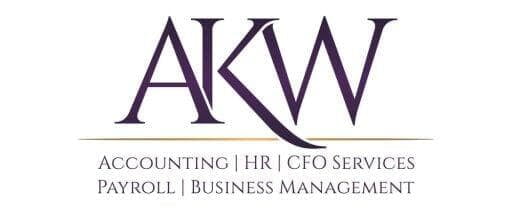9 Ways to improve your Accounting and Bookkeeping
Bookkeeping and accounting is at the heart of your business to succeed. After all, you’re in business to make money and proper accounting is how you track that money.
For many business leaders, the financial side of business is something that they consult infrequently, usually only when there is a need for a report or when a major decision needs to be made.
In truth, by taking some specific steps, you can turn bookkeeping and accounting into the engine that drives your entire business.
Here are nine ways to improve your bookkeeping and accounting and use it to grow your business:
Be clear on the difference - While bookkeeping and accounting are closely related, they are two different things. If you approach them as different ideas, you can make sure that you’re applying your energies that correct way. Bookkeeping is all about recording your business’s financial transactions, whereas accounting interprets, classifies, analyzes, and summarizes that financial data.
Put it on a schedule - If you don’t have a full-time bookkeeping and accounting staff, you need to make sure that you schedule time each week and/or month to do your bookkeeping. Once your books are maintained, you can apply yourself to the accounting and interpreting what you’ve learned.
Monitor daily transactions - Like a crime scene, the further away from transactions that you are in time, the harder it is to piece together what might have gone wrong. Every day, you need to balance your deposits and receipts. Compare your cash deposits against the cash receipts to look for discrepancies. If you accept credit cards, balance your deposits against your daily reports. The same goes for refunds, disbursements, and more. Balance every day and you won’t be looking back a month to try to fix a discrepancy.
Keep your personal finances separate - If you’ve ever seen one of those “we’ll fix your business shows” on TV, you know that one of the first signs that a business is in trouble is when the boss is using the cash register as their personal wallet. Keep your finances separate, because separating them later might require an IRS audit and some hefty fines.
Pay yourself - No matter how bad business is, the boss has to get paid. Even if you only pay yourself half the usual amount, you have to pay yourself. Otherwise, you’re suddenly violating rule #4 to feed yourself. It might seem like a hardship, but the stress of not having any money of your own only makes it even harder to help your business.
Hire a payroll service - Sorry. We know you’re a DIY type of person, but payroll is complex and can get messy very quickly. A payroll service can make sure your compliant with all state and federal regulations. There are a few things that government at all levels have zero tolerance for and incorrectly paid employees or payroll taxes are high on that list. Even if you only have one employee, get help to cut paychecks. You’ll be glad you did.
Do frequent audits - It might not be practical to do audits every month, but don’t wait until the end of the year to do an audit. If you have a bookkeeping service, they are likely to do ongoing audits so they can make sure that everything is being done well.
Ask questions - Whether you have a payroll, bookkeeping, and/or accounting service, don’t be afraid to ask questions. They might be experts, but it’s your business. You should be asking questions any time you’re not sure why something is the way it is. If you want to understand what they’ve done or are going to do, ask them. It’s their job to answer you. It’s that old thing, “The only stupid question is the one you didn’t ask.”
Put it in the cloud - Whether you have a service or you’re doing it yourself, you need to put your bookkeeping and accounting in the cloud. There are lots of software options or your service can do it for you. If you have an incident in your business, for example, a flood that wipes out your server, you’re still going to need to have your financial data. The redundancies and protections of a cloud-based system means that the information will be there when you need it. And yes, cloud computing is safe. The companies that run the cloud services, like Google, Facebook, and Amazon, have far more to lose from a hack than you do.
There are lots of other ways to improve your bookkeeping and accounting, but these ideas are a start.
If you would like some guidance, ask a bookkeeping/accounting firm. They can give you some ideas on how to improve what you’re doing, even if they don’t take it over. Sometimes all you need is a consultant or someone to double check your work. If you have questions beyond the above information or would like to learn more about your options contact AKW below.
